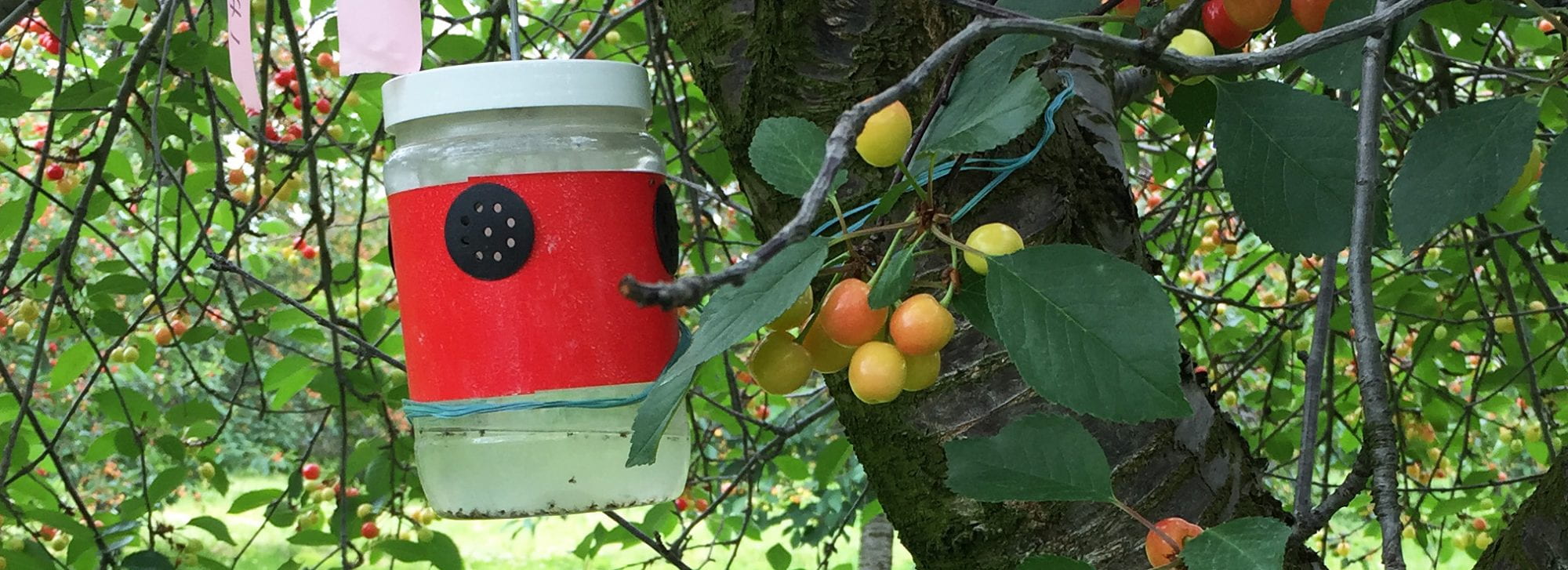Organic-approved insecticides for SWD include Entrust Naturalyte and Entrust SC (active ingredient spinosad.) Both require the 2(ee) recommendation for use against SWD. You must have the 2(ee) in hand when using the insecticide for SWD. Download the 2(ee) for Entrust Naturalyte on all crops except strawberry at this website http://128.253.223.36/ppds/523698.pdf. Download the 2(ee) for Entrust SC on all crops except strawberry at this website http://128.253.223.36/ppds/532002.pdf. For use on strawberry they are available at http://128.253.223.36/ppds/532341.pdf and http://128.253.223.36/ppds/532340.pdf, respectively.
The spinosads, Entrust, are good to excellent, but only 3 applications per crop year are allowed and only two applications can be done consecutively. The label requires rotation to a different class of insecticide active ingredient (i.e. either pyrethrin or azadirachtin for organic growers.) Other organic-approved insecticides include Pyganic EC 1.4, Pyganic EC 5.0 (both pyrethrins) and AzaSol (azadirachtin). These materials are fair to poor in effectiveness against SWD.
Organic control of SWD is particularly challenging given the few insecticide active ingredients available, making product rotation difficult and increasing the risk for insecticide resistance in the SWD population. Focusing on other tactics for management can prove beneficial. Consider the use of excellent sanitation and clean picking of fruit; careful canopy and water management to reduce micro-climates favorable for SWD; using netting <0.98 mm pore size, 80 g weight to exclude SWD from the planting; using regular fruit sampling such as salt water floatation to check fruit for larvae, followed by clean picking when infestation levels are high; and cold storage 33° to 38°F of harvested fruit to delay or inhibit SWD development inside fruit.

